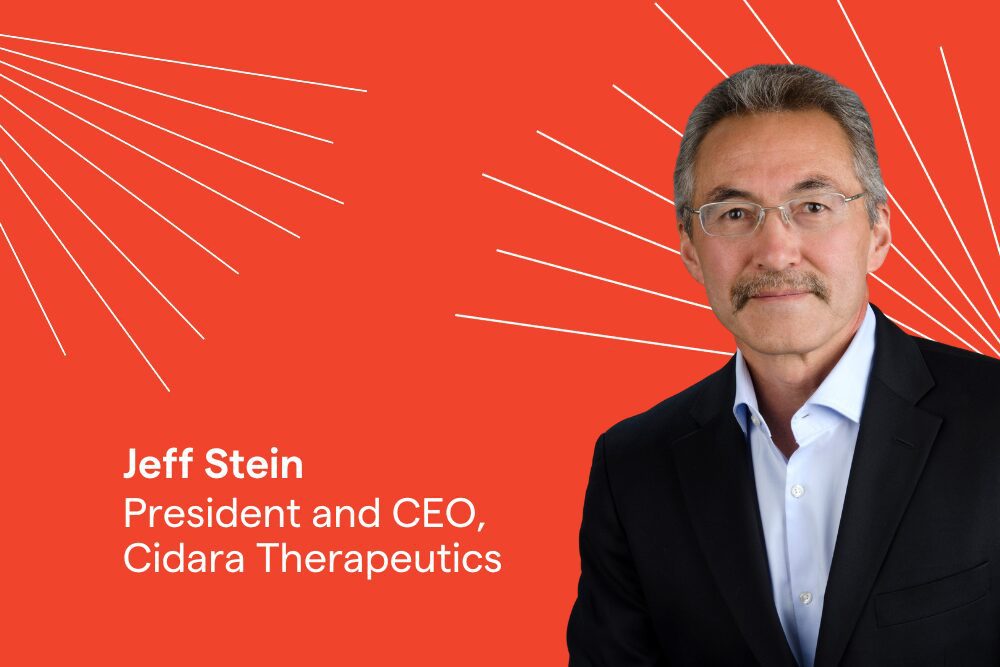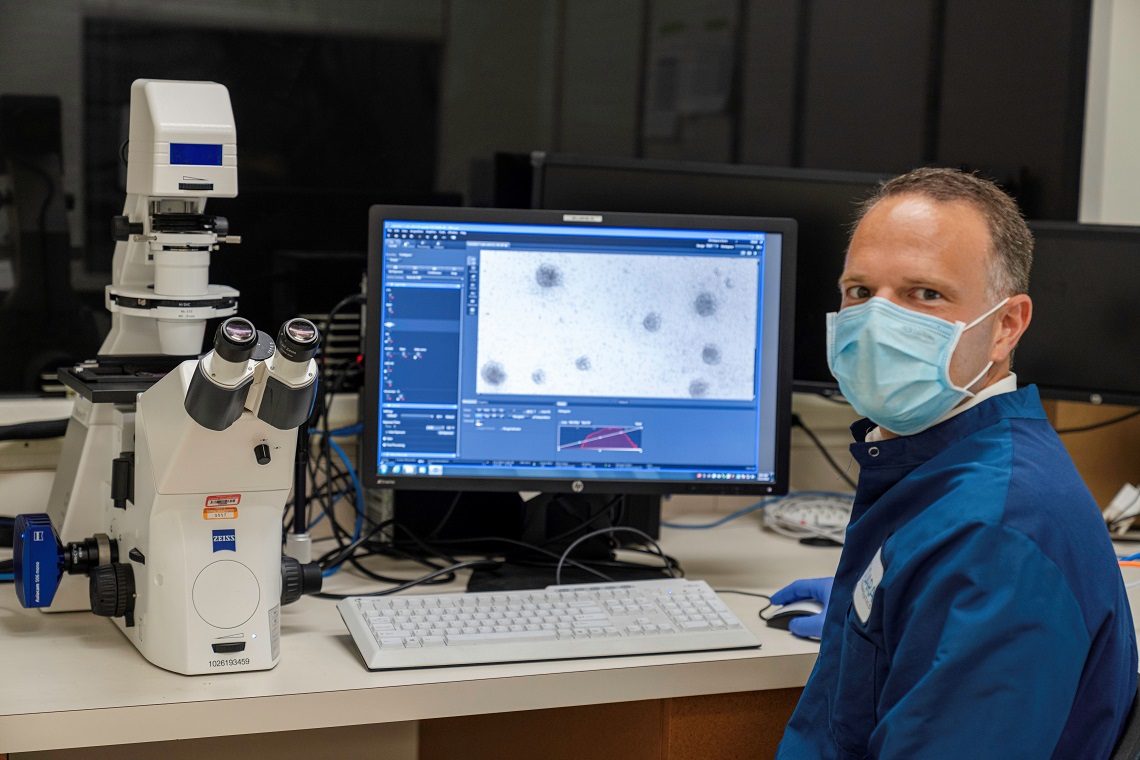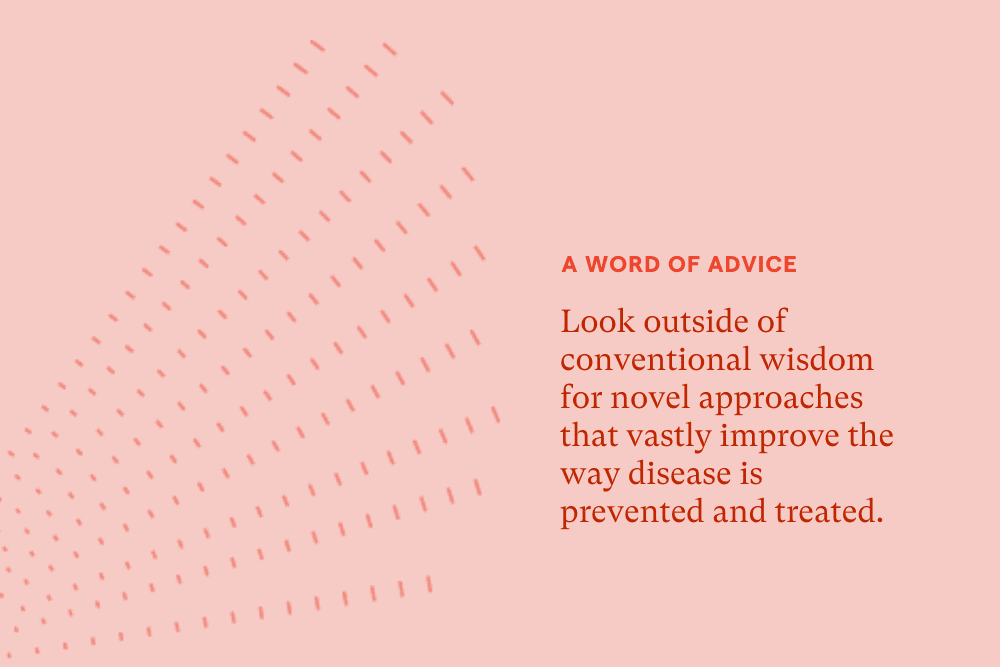August 15, 2022
Member Spotlight: Cidara Therapeutics

Cidara Therapeutics Is Rethinking the Classic Vaccine Approach for Communicable Diseases and Working Toward a New Kind of Universal Seasonal Flu Prevention
August is National Immunization Awareness Month, an annual campaign that multiple government agencies and health organizations take part in to remind the public on the importance of routine vaccinations. In this month’s Member Spotlight, we are highlighting Cidara Therapeutics, a San Diego-based biotechnology firm that is using the principles behind immuno-oncology and its propriety Cloudbreak platform to rethink the approach on how vaccines for common diseases such as fungal infections and influenza are developed. The company was founded in 2012 and recently filed an NDA for Rezafungin, its new drug to treat invasive candidiasis, and is also currently in a Phase 1 study of CD388, its drug for the prevention of the seasonal flu. We spoke with CEO Jeff Stein about the company’s innovations, why CD388 could provide universal protection against the seasonal flu, and what its findings could mean for COVID-19 in the future.
CD388 is a Drug-Fc conjugate that the company says “is disrupting the current standard of care” for flu prevention. So, this is not a vaccine in the traditional sense or a monoclonal antibody—it is designed to inhibit a virus’ ability to proliferate. Why is this possibly more effective than the standard seasonal flu vaccines that are available?
We believe that the current standard of how we treat and prevent influenza could be dramatically improved with CD388—a long-acting DFC that was designed to directly inhibit the replication of the flu virus.
For influenza, CD388 has the potential for true universal protection against all known flu strains in all people. Firstly, it targets a conserved target on the viral surface called neuraminidase. As a result, CD388 could potentially provide universal prevention and treatment of all influenza strains including seasonal and pandemic influenza A and B with just a single seasonal dose. Secondly, it is active in people with compromised immune systems, a significant population of people that current vaccines cannot address.
In March 2022, we dosed the first healthy volunteer in our randomized, double-blind, dose-escalation Phase 1 study to determine the safety, tolerability and pharmacokinetics of CD388 administered via intramuscular or subcutaneous injection, much like the seasonal flu vaccine. We are excited to continue advancing CD388 through the clinic with our collaborator, Janssen Pharmaceuticals.
National Immunization Month represents an opportunity to raise awareness about the importance of immunizations but also for a frank assessment of their limitations, especially for immunocompromised populations.
The CDC noted that only half of Americans get their flu vaccine every year, and during the 2018-2019 flu season (before Covid-19), 71 percent of people who did receive the vaccine did not respond to it. Why has there been such a low response rate to the influenza vaccine, and how will CD388 address this issue with a single dose?
While still a crucial preventative measure against the flu, and the best we have today, influenza vaccines have two major shortcomings that ultimately lead to their lack of complete protection. Firstly, they are only able to target a select few strains of influenza each year. Given the virus is changing rapidly even during the course of a single flu season, many immunized people are unprotected if they contracted one of the strains that was not included in that year’s shot cocktail. In addition, as with any vaccine the flu vaccine requires significant work from a person’s own immune system to be effective. For those with compromised immune systems or on immune-suppressive drugs, the vaccine is unable to elicit the immune response needed to provide protection. This population represents tens of millions of people in the U.S. alone every year.
CD388 could address both of these shortcomings with a single dose per flu season by providing protection against all strains of the flu and in all people, including those with compromised immune systems. CD388 is comprised of a highly potent inhibitor of viral replication attached to a portion of a human antibody called an Fc fragment. The Fc fragment is responsible for the extended half-life of CD388 and enables the once-per-flu season dosing. Thus, CD388 is a long-acting drug and not a vaccine or a traditional monoclonal antibody.
What could Cidara’s innovation possibly mean for SARS-CoV-2?
Work on our SARS-2 program is ongoing and greatly benefits from learnings from the CD388 influenza program. Data to date show that our SARS-2 DFC has the potential to target all known SARS-2 strains, including the Omicron strains, in a manner similar to how CD388 can target all influenza strains. This could have significant benefits over the current vaccine-centric standard of care for protection against SARS viruses.

In addition to the Phase 1 study for CD388, you also have some other Cloudbreak treatments in the pipeline including oncology programs. You have also recently announced that you have filed an NDA for your lead antifungal drug, Rezafungin. You have mentioned before that Rezafungin is a treatment for conditions that have been overlooked in the pharmaceutical space (serious fungal infections that have a high mortality rate)—is finding or developing better treatments in spaces that are overlooked a big part of Cidara’s mission?
Our mission is to develop long-acting therapeutics designed to improve the standard of care for patients facing serious diseases. Rezafungin, as potentially the first new therapeutic for candidemia and invasive candidiasis in over a decade, has the potential to treat this deadly disease with a once-weekly dosing regimen. Our Cloudbreak program has the potential to extend this further in viral diseases with once-per-season administration as well as in oncology where we are combining multiple mechanisms of action into a single DFC.
What is your biggest challenge right now?
For Cidara, one of our biggest challenges will come with the educational burden of developing an entirely new therapeutic modality. We believe that Cloudbreak DFCs have true potential to change the standard of care for viral infections and oncology. A key priority is to describe the potential of the DFC approach to physicians, patients and regulators.
Cidara has been named a “Top Place to Work” by the San Diego Union-Tribune for five consecutive years (2016-2021), and it’s noted that you were the top-ranked biotechnology company that made this list in San Diego. How do you as a company manage to do such meaningful and precise work, yet keep things fun and engaging for employees?
We are honored to be recognized as one of the best places to work in San Diego by the Union-Tribune for five consecutive years. We are a team of brilliant scientists and thoughtful leaders with a passion for making a difference. I’m particularly proud of our employees for their determination and focus in advancing our infectious disease and oncology programs during the COVID-19 pandemic. We have a tremendously supportive workplace culture, which is important during difficult times. We all work to support each other as well as the patients who will potentially benefit from the medicines we are developing.
August is National Immunization Month. What does this month mean to you, and why is it important that the public acknowledge it?
It’s important that we acknowledge National Immunization Month now more than ever. Reflecting over the past two years, a potential silver lining of the COVID pandemic was the reinvigorated importance of vaccination. For me, National Immunization Month represents an opportunity to raise awareness about the importance of immunizations but also for a frank assessment of their limitations, especially for immunocompromised populations. For those with weakened immune systems or on immune-suppressive medications, vaccination may provide better protection than natural immunity alone, but not nearly to the same degree of durability or robustness as people with a healthy immune system. We cannot forget about these patients, and at Cidara we are working to ensure they are not without protection.
What advice do you have for up-and-coming life scientists?
The advice I have for upcoming life scientists is to never settle for the status quo or incremental improvements. There is a significant need to develop truly innovative approaches for the protection against and treatment of serious disease. I challenge the next generation of life scientists to think creatively and challenge conventional wisdom in order to transform the current standard of care.
